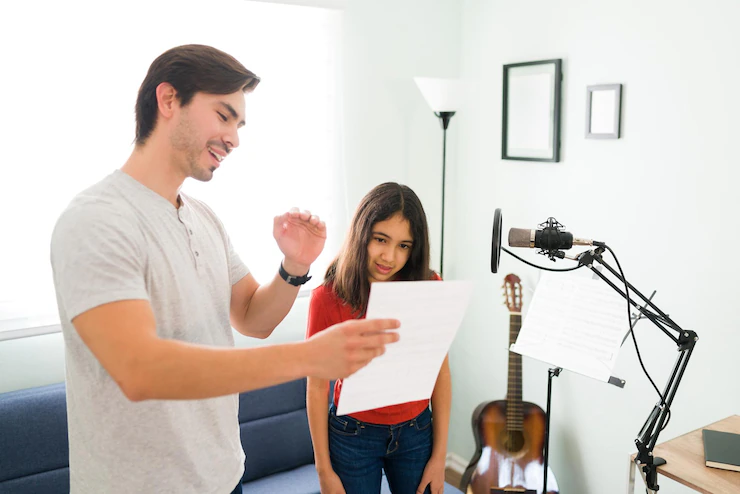The right age to start music lessons for your child depends on the child’s goals. While many children want to become musical virtuosos, not all children are interested in pursuing this path. Some children prefer other aspects of music more than the performance.
Generally, some musical instruments for young children are easier to learn than other types. For example, the piano and drums are easy to play for a child. In contrast, violins are more difficult to play. This is why musical schools like the one found here; https://ncmac.net/, recommend that children with limited patience should start with easier instruments.
If you want your child to learn music and have fun, start them at an early age. For example, you can begin piano lessons when your child is four years old. Once your child is six or seven, you can begin lessons for other instruments.
Even if your child is not ready for formal music lessons, exposure to music is still essential for fostering a love of music. Many kids begin hearing music as early as nine months and develop a taste for certain styles. It is important to find an age-appropriate music program and to find an instructor who will keep things interesting.
That being said, here is a simple breakdown of the perfect ages for children to start learning some musical instruments.
Appropriate Ages For Children To Learn Certain Musical Instruments
- Violin 4+
- Piano 4+
- Viola 6+
- Flute 7+
- Saxophone 7+
- Drums 7+
- Guitar 7+
- Trombone 8+
- Trumpet 8+
- Clarinet 7+
- Cello 6+
How To Choose A Music Lesson Program For Your Child
For Younger Children
For younger children, who are two years or less, it’s best to go for a program that focuses on movement, lullabies, and response to musical genres. This kind of music lesson doesn’t involve learning any musical instrument. Its sole purpose is to instill the love of music in a child. Importantly, most early-stage music programs require parents to come along with their children.
Six Years Plus
Six-year-old children and older ones can go for formal music lesson programs, which can either be group or individual programs.
Group music programs are beneficial for children because they enable them to develop social and teamwork skills. On the other hand, personal music lessons are designed to suit a child’s specific needs.
Traits To Look For In A Music Teacher
Passion For Music
Good music teachers have a genuine love for music. As it’s important for a music teacher to be skilled in playing instruments, they must also demonstrate a passion for music. When a music teacher has a passion for music, it makes it easy to pass the love to the child. The love will also make them spend extra time teaching the child, if necessary.
Patience
Learning music is a huge task, especially for children. Moreso, dealing with children generally requires patience. So when you’re considering a music teacher for your kid, you should find out if they’re patient enough. Good music teachers patiently teach children fundamental concepts, regardless of how difficult the process is. These experts understand that children learn at different paces.
Accessibility
Good music teachers are easy to access. Even on days when they aren’t taking music lessons, some music teachers allow their students to reach out to them if they wish to ask any questions. Additionally, they take time to study their students to know their learning styles and ability.
Communication Skills
Some music ideas may be difficult for younger children to learn. So when considering choosing a music teacher, you should find out about how they communicate these ideas to their students. Good music teachers know how to simplify complex music ideas for kids to understand.
Experience
Excellent music teachers are experienced with all parts of music, including the practical and theoretical aspects. They know how to implement fundamental aspects like breathing, hand position, and posture. They know how to use these theory ideas to help students develop important music skills.
How Often Should You Be Involved In Your Child’s Music Journey As A Parent?
If you want your child to be successful in the music line, it’s not enough to choose the right music plan or hire a good music teacher. You also have to be involved in their music journey. When you set a good example for your child, they’ll also learn to take music seriously. From time to time, ask their music teacher or group instructor about their progress and how you can help them achieve excellence. Still, it would be best if you didn’t push too hard.
In conclusion, knowing the right age for children to learn how to play certain musical instruments and choosing the right music program or music teacher are the keys to ensuring your child’s success in music.

